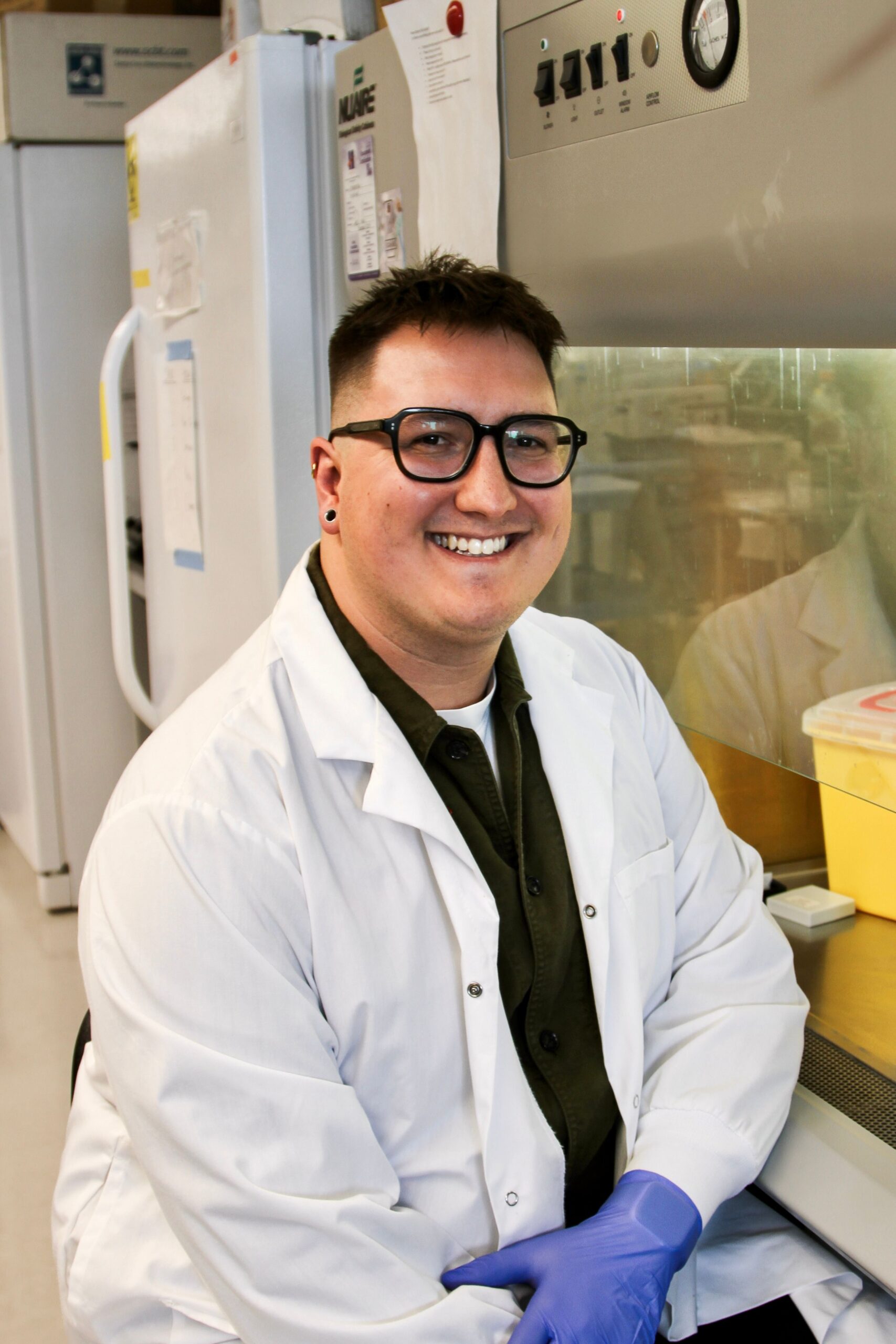Senior lab technician Gregory Lops credits much of his early interest in science to his mother, who worked as an elementary school science teacher when she wasn’t a stay-at-home mom. “I always liked it when she would talk with me about what she was teaching her students,” he says. But what ended up clinching his passion for science, and biology in particular, is the part that turns many young students away.
“Once I got to high school we started doing dissections—like a cow’s eye or a fetal pig,” Gregory says. “It’s the part a lot of people don’t like, but I found it so interesting to work with my hands and get up so close to see what’s happening in the biology of these different animals.”
Gregory arrived at Atuka four years ago, fresh from a Master’s degree in biology at McMaster University, where his thesis focused on Fragile X Syndrome, a neurodevelopmental disease. Working at Atuka appealed to Gregory as he could combine his love of lab work with his burgeoning interest in neuroscience and neuropathology.
As a senior lab technician, tell us what you do.
I lead the technical aspects of our projects, working in partnership with our scientists to run the studies and coordinate all the hands-on aspects. While the scientists design the projects, write the proposals, and work with the clients to determine what we need to assess, I figure out how we will do the assessing. I work with the animal facilities, making sure surgeries and dosing go smoothly, as well as ensuring necropsies are performed correctly and all the necessary tissue is collected. Beyond the work in the animal facilities, I ensure all the post-mortem measurements are also performed correctly and on time. Basically, I make sure the technical side of our projects run smoothly, are completed properly, accurately, and with the highest level of quality.
Are there any similarities between your work here and the work you did as part of your Master’s?
One parallel I see between my Master’s work and the research here is how there are a lot of similarities with different diseases in the brain. During my Master’s, for example, I was interested in glial cells and astrocytes within a neurodevelopmental disease. We don’t talk about those cells as much here, but I’m always reminded how important they are. I always try to pull focus towards astrocytes and glial cells in the context of Parkinson’s disease because of course they are also very important in the PD brain. The other similarity to my Master’s is mitochondrial dysfunction being a contributor to the pathology, this was the focus of my research on Fragile X Syndrome and now more than ever we’re focusing on mitochondrial dysfunction within Parkinson’s which is really exciting.
You recently returned from an extended leave of absence during which you travelled around much of Europe with your husband, indulging your passion for photography. How much does that creative part of your brain shape your work in science?
It happens in a lot of different ways. Creativity influences problem solving and innovation, coming up with ideas for different projects, or finding different techniques for doing something better. I think my photography skills come in handy when we’re doing microscopy, because a microscope and a camera aren’t really that different. There are a lot of camera components that are also in microscopes. You’re dealing with aperture, different focal planes, and exposure time. All these different things that I have learned through photography have helped me a lot in understanding microscopy.
It wasn’t just your mother who had an influence on your interest in science, but your sister as well, who is a nurse.
Yes, actually I started my undergrad at McMaster in nursing. I really liked biology and chemistry in high school, and I wanted to help people. My older sister being a nurse made it seem like something I could go into. I did a year and a half of nursing school before I realized how stressful and difficult an environment hospitals can be to work in. Kudos to everybody who works in health care. I still loved biology, so I needed to find a different way to be helpful and follow my passion. First, I switched out of nursing to a general science degree, and then I specialized in biology and psychology. That was my shift—away from directly helping people in health care to helping people by doing research in a lab.
